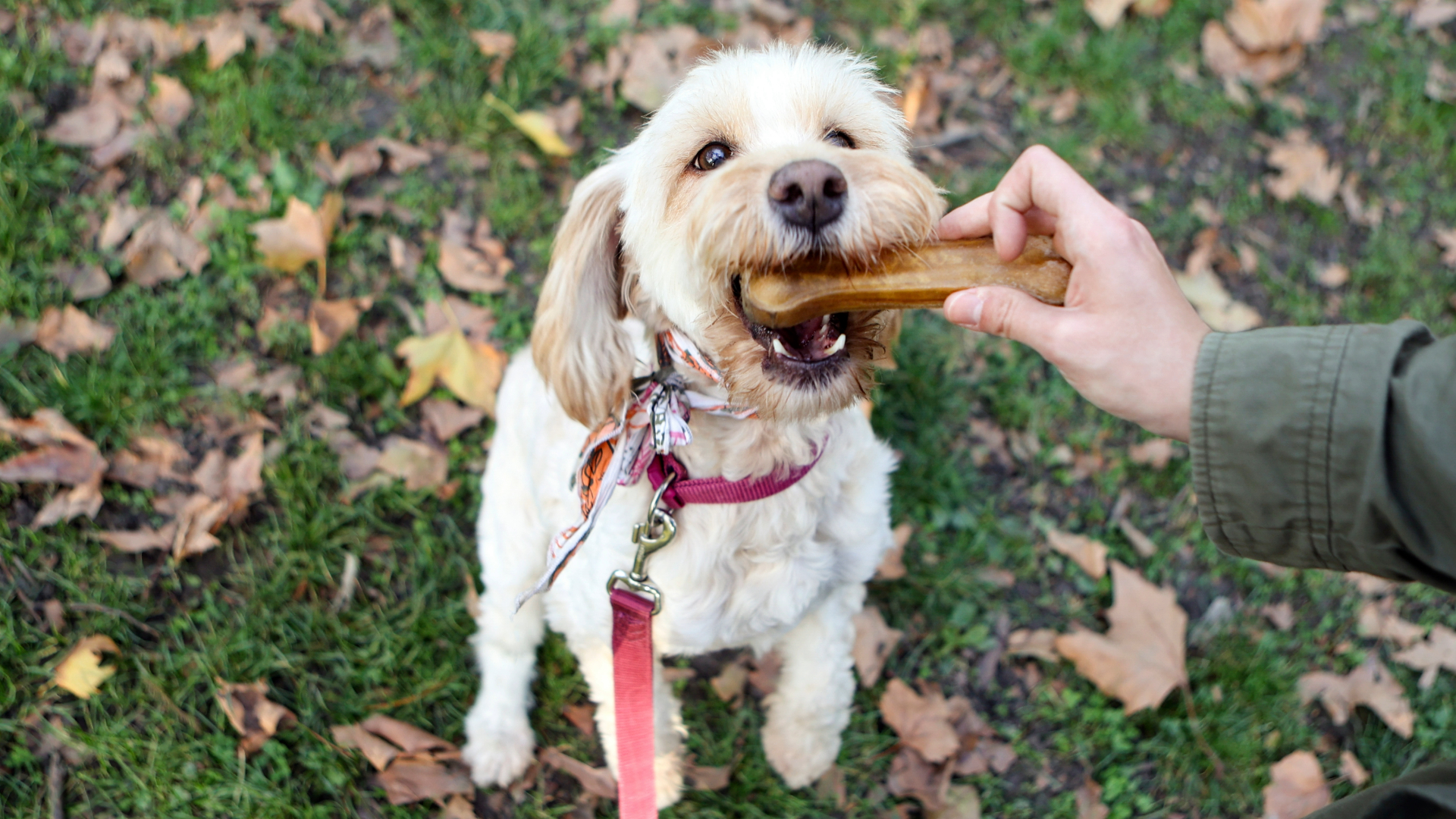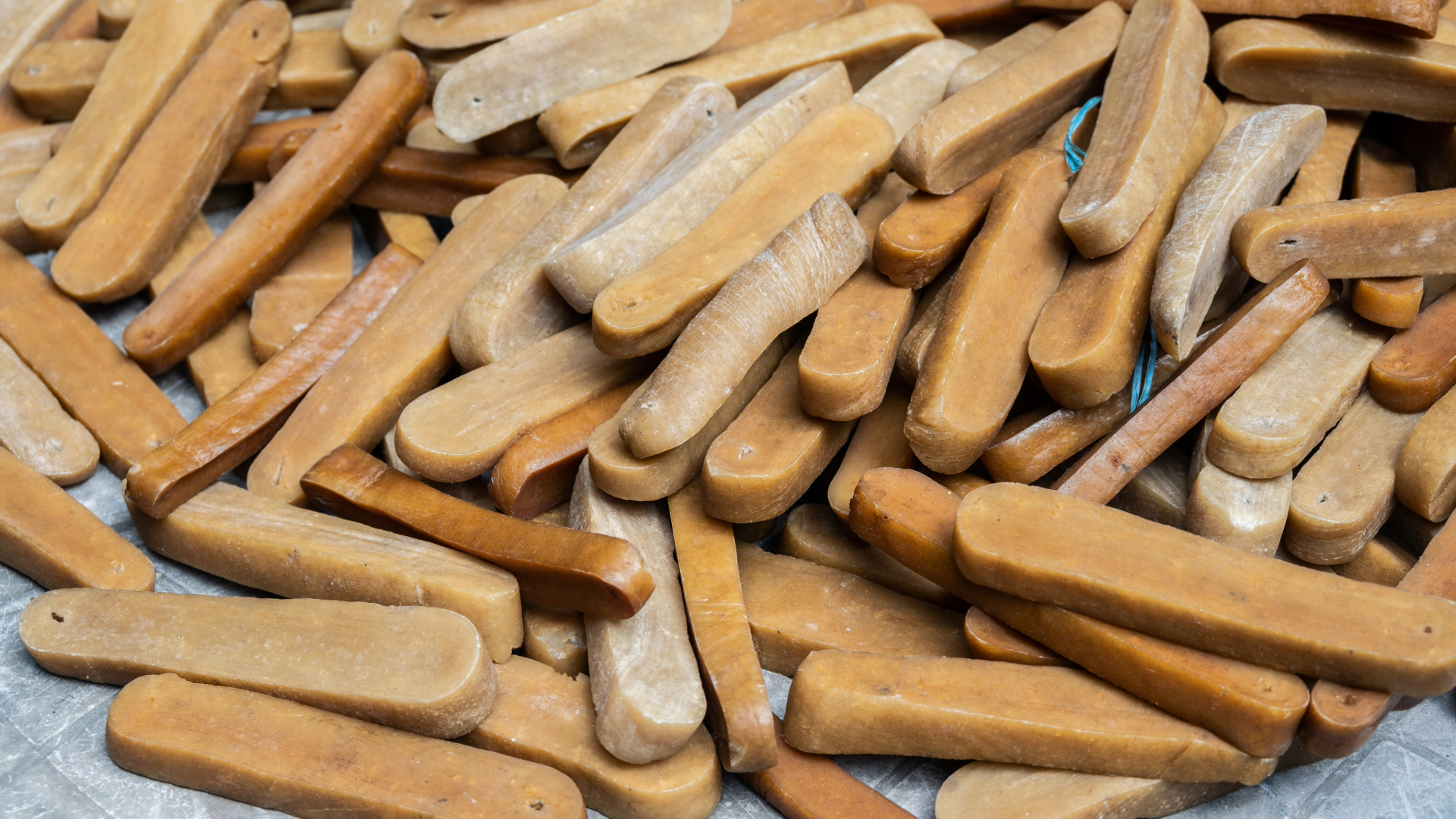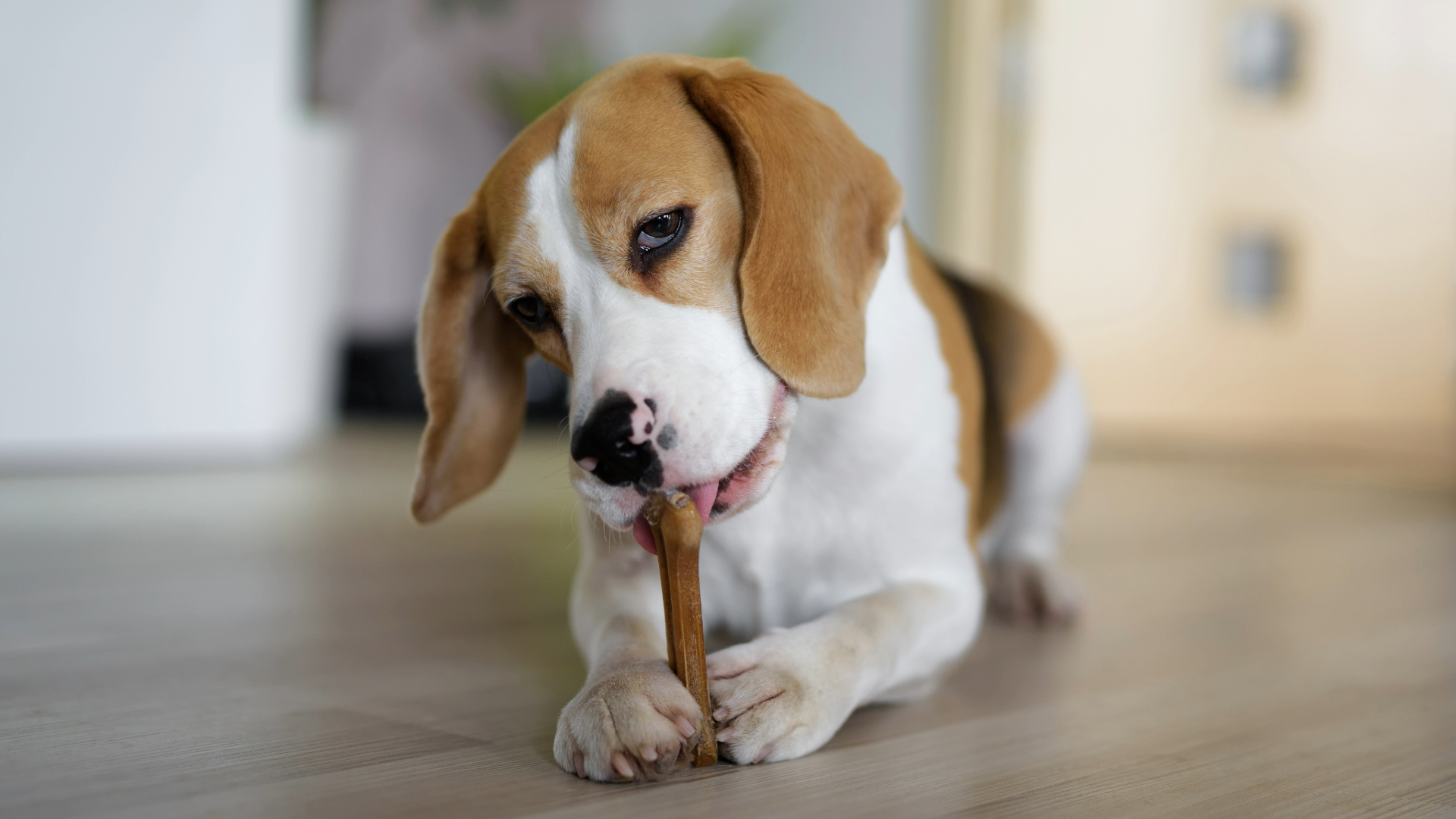
If you're looking for a long-lasting dog chew, you might be wondering, "Are yak chews safe for dogs?" These all-natural dog chews have become super popular and are often recommended for aggressive chewers due to their hard texture.
Made from a mix of yak milk and cow milk, these chews are high in protein, low in fat, and may be suitable for pups with certain allergies. And since the ingredients are renewable and sustainable, they’re more environmentally friendly compared to plastic chew toys.
Yak chews might seem like the perfect choice of safe dog chew for an aggressive chewer, but some pup parents and professionals have concerns about their safety, particularly regarding dental fractures and gastrointestinal obstruction. Below, vet Dr MacMillan reveals the pros and cons, and why they're not the best long-lasting dog chew.
How are yak chews made?
Yak's milk and cow's milk are boiled and air-dried for several hours, hardening into a chew.
Are yak chews safe for dogs?
Since yak chews are very hard, most vets don't recommend them, as they could result in a painful fractured tooth, according to Dr MacMillan. While puppies are most at risk, this can happen to any dog that bites into something hard.
She explains: "Yak chews present the same risk as other frowned-upon items like antlers or bones. Vets are better at recognizing this potential issue and educating owners on the importance of protecting their dogs’ teeth."
So what does she suggest instead? "I usually recommend that owners stick to chews that you don’t mind hitting against your knee, or that you can easily dent with a fingernail. These include specially designed dental chews and rubber toys."

Pros and cons of yak chews
If you're still on the fence about feeding your dog a yak chew, Dr MacMillan has put together a list of the pros and cons. You'll want to consider these carefully beforehand:
👍Pros
- Long-lasting chew
- Made from natural ingredients
- Good for aggressive chewers
- Digestible if small pieces are swallowed
- High protein content, low in fat
- May be allergen-friendly for dogs unable to eat chews containing other protein sources or gluten
- Environmentally friendly, as they are made from renewable and sustainable ingredients
👎Cons
- Too hard to be considered tooth-safe, there is a risk of dental fractures
- Hard chews can be particularly problematic for puppies, elderly dogs, and dogs with jaw issues
- Large pieces of swallowed chews could still cause gastrointestinal obstruction
- Won’t be suitable for dogs with dairy intolerance
Are yak chews safe for dogs to swallow?
"If your dog swallows small pieces of yak chew, then it is unlikely to cause any issues", explains Dr MacMillan.
Since the ingredients are all-natural, it's completely digestible for dogs and won't be a problem unless your dog has a dairy intolerance.
However, Dr MacMillan recommends removing the chew from your dog once it becomes worn to a small size. If a very large chunk is swallowed whole, they will be at risk of a dangerous digestive tract obstruction from occurring, which can cause serious problems.
She adds: "Making sure that you purchase the right size chew for your dog can also help to prevent them from accidentally swallowing large chunks of it."

How long should I let my dog chew on a yak chew?
If you're set on giving your dog a yak chew, you might be wondering how long to let them have it. However, Dr MacMillan can't recommend a duration – because she doesn't recommend them at all, even under supervision.
She says, "Supervising your dog won’t help guard against dental fractures. These can occur suddenly and without warning. It is not possible to observe the strength at which your dog is biting down on a chew and intervene. Many owners don’t even notice when a fracture happens, as most dogs are very stoic."
Can my dog have a yak chew every day?
No, most vets don't advise feeding yak chews to dogs at all, let alone every day. Dr MacMillan suggests looking for products that are recommended by the Veterinary Oral Health Council (VOHC), which can help with oral hygiene and are safe for teeth.
She says: "If you do decide to go ahead with yak chews, use them in moderation – once or twice a week."
You might have heard that soaking and microwaving yak chews can soften them to make them safer, but Dr MacMillan still wouldn't advise them.
She says: "I have no experience of this and wouldn’t like to suggest whether these methods work when there are other safer products available out there."
Overall, we wouldn’t recommend feeding yak chews to your dog. While they may offer some appealing benefits – like being long-lasting and high in protein – the risks simply aren’t worth it.
Read next: Best durable dog toys or are rawhide bones good for dogs?
Edited by Georgia Guerin and Alexis De Leaver.







